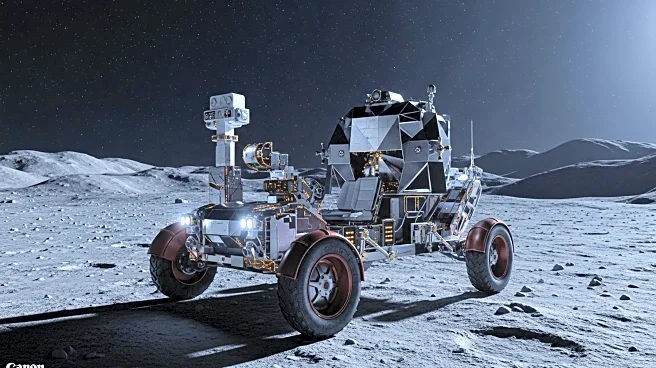What's Happening?
ispace Europe, a subsidiary of the Japanese company ispace, is advancing its lunar exploration efforts with the development of the MAGPIE mission. The mission aims to study hydrogen on the Moon, utilizing a small rover equipped with a radar, neutron spectrometer, and a shallow drill. The project is part of a broader effort to establish a European presence in lunar exploration, with Luxembourg emerging as a key hub for space activities. The company is leveraging 'new space' approaches to make lunar exploration more cost-effective and efficient.
Why It's Important?
The MAGPIE mission represents a significant step in Europe's efforts to participate in the burgeoning lunar economy. By focusing on resource discovery and surface mobility, ispace Europe is positioning itself as a leader in lunar exploration. The mission could pave the way for future commercial and scientific endeavors on the Moon, potentially leading to new industries and economic opportunities. Luxembourg's role as a space hub highlights the growing importance of international collaboration in space exploration.
What's Next?
The MAGPIE mission is awaiting approval from the European Space Agency's ministerial council, which will decide on its budget in the coming months. If approved, the mission is expected to launch in the late 2020s. ispace Europe will continue to build partnerships with other space agencies and private companies to advance its lunar exploration goals. The success of the MAGPIE mission could influence future European space policy and investment in lunar exploration.
Beyond the Headlines
The development of the lunar economy could have long-term implications for global space exploration, including the potential for resource-based industries on the Moon. The collaboration between ispace Europe and other international partners reflects a shift towards more integrated and cooperative approaches in space exploration, which could redefine the future of space missions.








